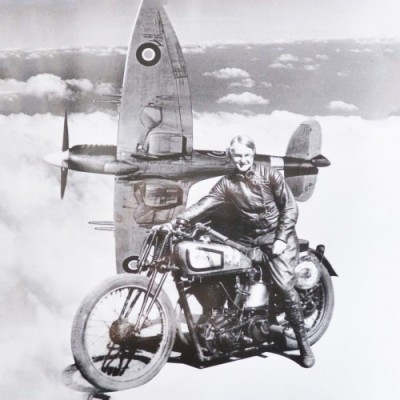International Women’s Day, commemorating Beatrice Shilling
By Michelle Monaghan
Every International Women’s Day (IWD), I mark the event by commemorating an incredible woman/women from the past or present. For IWD 2023, I am looking at local Hampshire woman Beatrice Shilling.
I first encountered Beatrice Shilling in a press release about an Extraordinary Women of Hampshire election and exhibition from September 2018. The election was run by Winchester Heritage Open Days in collaboration with Winchester Electoral Services, Smith & Ouzman and the Winchester City Council.
People were required to vote for their favourite from a diverse range of local women for Hampshire’s most Extraordinary Woman. Shilling was among them and although she did not win the title, there is no doubt that she is an extraordinary woman.
Shilling was born in Waterlooville, Hampshire, in 1909. After leaving school, she was an apprentice electrical engineer under Margaret Partridge for three years. Partridge was an electrical engineer involved with the Women’s Engineering Society (WES) and the Electrical Association for Women (EAW), the former of which is still active today.
With Patridge’s encouragement, Shilling went to Manchester University to study Electrical Engineering. However, Shilling and another woman Sheila McGuffie were the only female students on the course. Reflecting on her time at university, Shilling said: “We two women students were a slight embarrassment to the Engineering Department at times. On a boiler trial in hot weather, for example, the normal state of undress of the stokes was rapidly abandoned when it was remembered that women were present.”
In 1932, Shilling graduated with honours and undertook further studies for an MSc in Mechanical Engineering in 1933. As a graduate, she began working as a research assistant for Dr GF Mucklow’s work on single-cylinder supercharged engines. While she was working, Shilling was racing motorcycles as she found a passion for it with the club at university. Her love for motorcycles helped her narrow her interests and speciality in engineering. She said, “The internal combustion engine had fascinated me ever since I started motorcycling and I preferred to to specialise on thermodynamics rather than electrical engineering.”
Her passion for motorcycling was so great that Shilling became a skilled rider. In 1934 she earned a Brooklands Gold Star for lapping the track at over 100mph and was only the second woman to do so.
Three and a half years before World War II (WWII) broke out, she worked at the Royal Aircraft Establishment (RAE). Shilling was the head of research and development of carburettors. This position would make her a leading expert and acclaimed for her contributions to the war effort.
Fast forward to 1940 during WWII, Shilling was invaluable when the Royal Air Force (RAF) found problems with the Rolls Royce Merlin engine in their latest fighter aircraft. Whenever the aircraft were propelled into a hard nose dive, the engines would stall due to the negative-g force from dive flooding the carburettor. In response, Shilling put her thinking cap on and invented the RAE restrictor. It was a small metal disc with a hole in the middle. It would be placed into the Merlin engine’s carburettor, restricting the fuel flow and stopping flooding at perilous moments.
By 1941, the RAE restrictor nicknamed ‘Miss Shilling’s Orifice’ had been fitted throughout various aircraft and it was used until a new design of the carburettor could be installed. She continued to lead investigations after the war related to aircraft and was even involved with work on supersonic aircraft and rocket propulsion.
Shilling was awarded an Order of the British Empire (OBE) for her outstanding work and achievements in 1947. In 1969, she received an Honorary Doctorate from the University of Surrey. She was honoured in the Golden Jubilee of The Women’s Engineering Society the same year. More recently; a plaque was unveiled at Waterlooville Library celebrating her legacy in 2019.
To close this article, I leave you with Shilling’s words from 1969 relating to the future of women, girls, and engineers.
PICTURED BY THE UNIVERSITY OF MANCHESTER: Beatrice Shilling.




